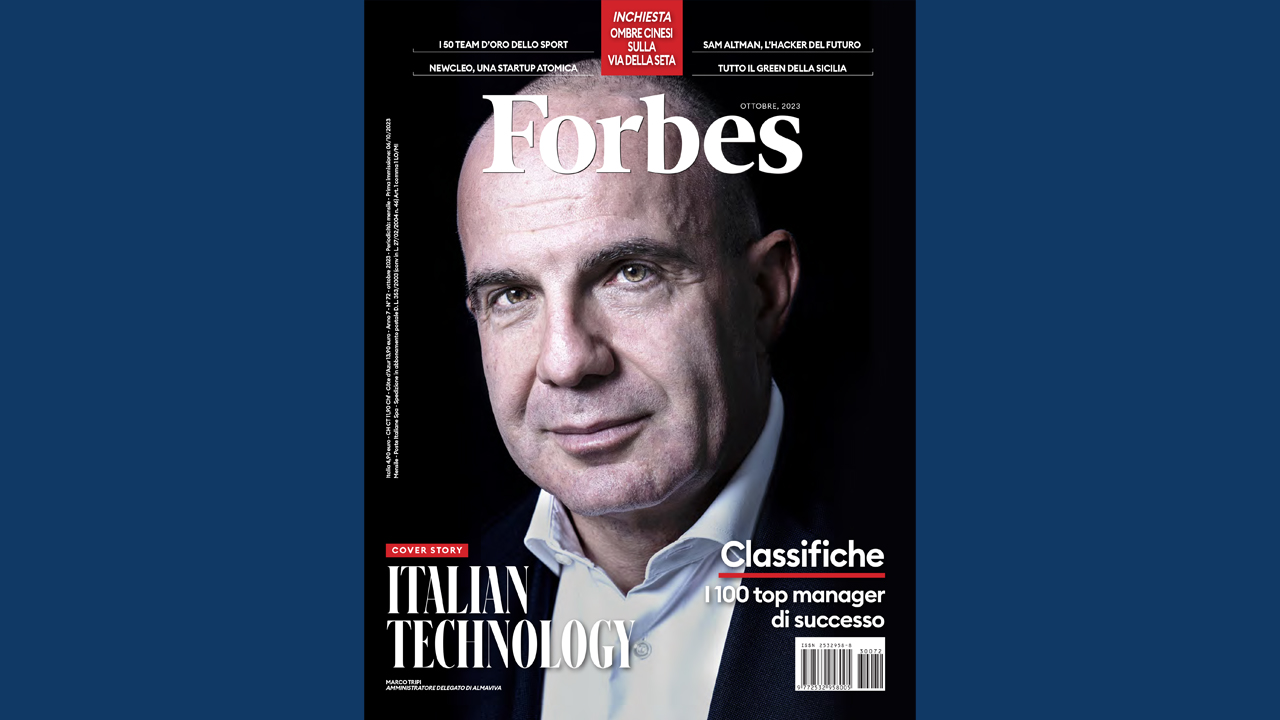
09-10-2023
What is Italian Technology? It is the Italian way to digital transformation, according to Marco Tripi, CEO of the Almaviva Group, in the cover-story interview of Forbes’ October issue.
“Made-in-Italy technology represents a second explosion of Italian genius, after the Renaissance,” writes the paper’s editor Alessandro Rossi, who conducted the interview.
Tripi, “a highly insightful entrepreneur and executive, who knows how to move in global markets with enormous care and always hits the target wherever there are opportunities for growth”, describes the path that has led the group to become a global network with a turnover of over €1 billion, establishing itself in advanced foreign markets like the United States, the United Kingdom, and Finland, to name a few.
The competitors are global giants in the IT sector. Italian identity is a foundational element and a core value.
“My approach is that of an entrepreneur, not an executive. There’s a big difference,” says Tripi. “In recent years, the majority of Italian companies in the sector have been sold, mostly to investment funds. In Italy, very few Italian technology and telecommunications companies are controlled by entrepreneurs, hence our uniqueness. Compared to all the most developed Western countries, we have the lowest percentage of entrepreneurial activity in the sector.”
And what do you think is the difference between entrepreneurial and executive management of a company?
“It’s evident in the intensity and perseverance with which an entrepreneur faces challenges, in the determination to create a solid and enduring reality that brings value to people and the country. Selling a business isn’t a bad thing, but it changes the perspective. Every week, for instance, a fund comes forward to make us an offer. But the desire to create something meaningful, to grow, to be the first IT company in Italy, and then the first in Europe, prevails. This is a different approach from those who aim to maximize sales. Having been there for the group's birth, growth, and recent rapid development, leads me to focus more on the satisfaction that comes with making it grow further, abroad as well, rather than solely looking at money.”
Basically, exporting technology.
“Not only do we export technology, but we’re also attractive to the labor market and import talent. Among our Italian employees, we have 25 different nationalities and we recently hired 15 Indian engineers who studied in Italy.”
You’re present in various critical sectors of the country system. You could say that we’re in your hands.
“I wouldn’t go that far. But there is some truth to it, because we support the digitization of the country. Public administration is a very broad area, and we’re not alone in this field. But let me ask you something: with regard to our country's critical assets, is it better to be in the hands of an Italian company and Made in Italy technology, or in the hands of a foreign company?"


